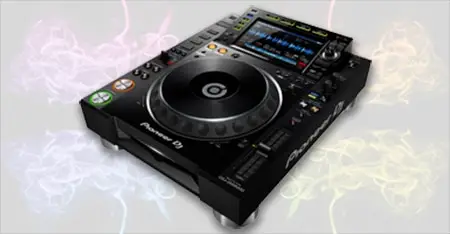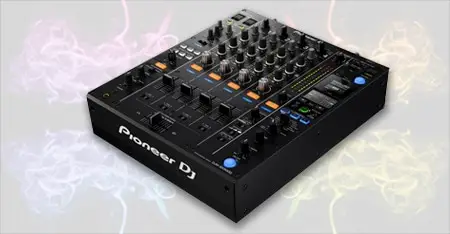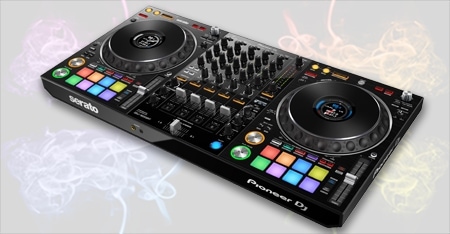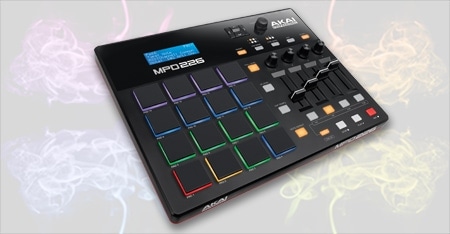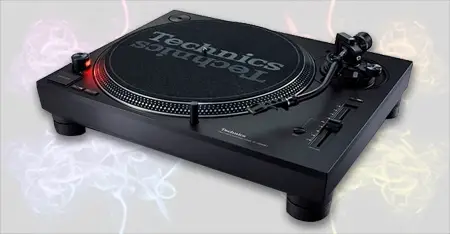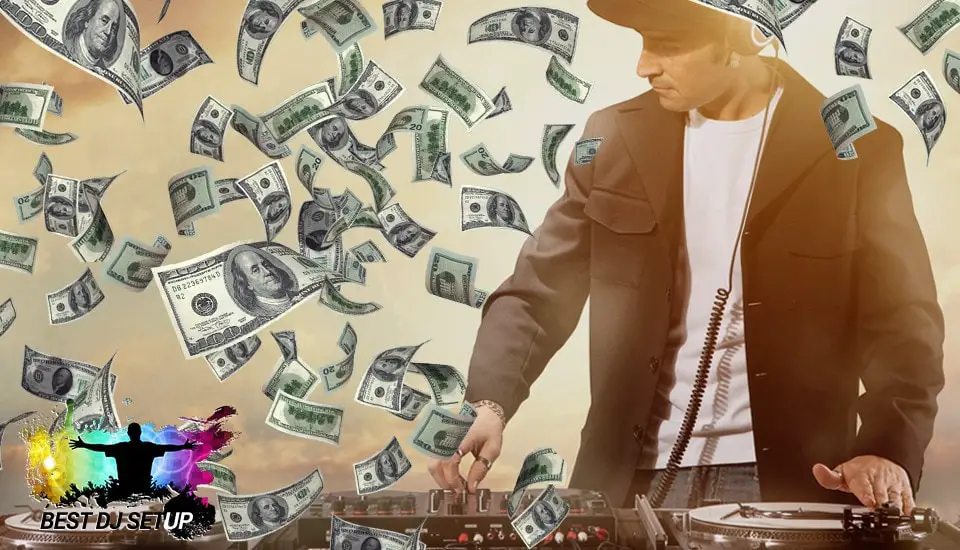
One of the things that puts people off wanting to make DJing a career is not understanding how to make enough money to survive. People often only think about gig income. But the smartest, most successful DJs will diversify their revenue in many different ways. By adding multiple streams of income, a DJ can build up their income, so that they are earning money even when they are nowhere near a set of decks (see our recommended decks here). In this article. I will go through and break down many different methods and give a full answer to how do DJs make money?
We’ll briefly go over the most obvious before quickly moving on some methods you might not be aware of…
Gigs
Contents
This is the first thing that springs to mind when considering how the DJs make money. And for many DJs, it will actually form the bulk of their income, particularly when it comes to the superstar DJ. They can, as we all know, earn millions per show. But they only make up a tiny percentage of the earning DJs in the world.
The reality is that a smaller DJ’s earnings will only equate to a few hundred dollars, maybe a couple of thousand per gig. Luckier ones will have their travel paid for as well so that this doesn’t eat into the overall profitability of doing gigs.
That said, even those that do get their expenses covered would be risk struggling if they relied on gig income alone.
Corporate & Private bookings

Whereas clubs and festivals rely on ticket sales to both make a profit and cover the cost of a DJ salary. Corporate and private events tend to have a fixed budget allocated upfront. This can potentially make them a lot more lucrative for DJs.
That’s why it’s not uncommon to hear of DJs/artists being paid obscene amounts of money to make a personal appearance. These can include things such as product launches, conventions or even private birthday parties. I mean, you only need to see a few episodes of MTV’s “Super Sweet 16” to realize that there are plenty of people with too much money… And that every DJ has a price.
So, while they are probably not the ideal gigs a DJ wants to do. Putting in a few private performances each year can add a healthy amount to their baseline income.
Tutorials and Master Classes

One of the absolute best things about the internet is the ability to learn anything you want from the comfort of home and from teachers you genuinely respect and admire. While education dollars used to be dominated by institutions like universities, nowadays any professional who is good at what they do (and even some that aren’t) have the ability to make money online.
And DJs are absolutely no different. Some prime examples of this include Deamau5’s Masterclass (available here) and Laidback Luke’s own DJing course released through DigitalDJTips.
And it makes sense. Along with an ever-growing population of people looking to learn how to DJ, online courses are also amongst the most passive forms of income you can create.
This is because, while work goes into creating the course upfront (recording/editing videos etc), once they are online they require very little ongoing attention from the DJ themself. Either the DJ won’t be present in the course community at all or they will have staff to handle inquiries and questions for them.
This means that once the marketing machine behind the course is up and running, the DJ can literally make money while they sleep. Anyone can purchase the course. 24 hours a day, 7 days a week.
At this point, the only work that needs to be put into the course is updating it. This might only happen every one or two years to make sure that the technology, in particular, is kept up to date. Plus adding any new skills or tricks they have learned in the meantime.
Sidenote: How Do DJs Make Money When There Is So Much Free Content Online?
The truth is that you can learn every aspect of DJ through searching various YouTube tutorials and piecing the concepts together yourself. And many new and established DJ do this regularly.
However, the benefits of learning DJing through a structured course is that you will be making sure that you will hit every important skill needed, in order. The courses are often laid out so to compound what you have learned previously.
So, starting with the most basic methods you build and build on top of the knowledge you have acquired. This has the effect of speeding up your learning as you’re not jumping ahead and attempting to run before you can walk.
The other benefit is that a course will often include modules that you may not have considered.
For example, while knowing some basic music theory is not essential to DJing, it can really help you understand how tracks are constructed. Therefore helping you to create more complex and overall better DJ mixes. And it is simply something you may not have considered looking up or important enough to give any time to.
There is also a virtually unlimited amount of different DJ tricks and techniques. So when you learn direct from a master, such as Laidback Luke, you are really building up a good, solid foundation that will serve you for the rest of your DJ career.
Podcasting
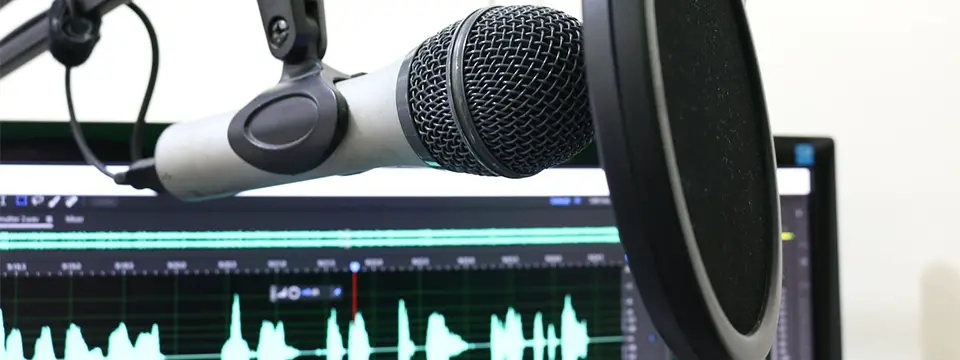
There is a misconception amongst people that podcasting has become saturated but to paraphrase Tim Ferriss (author and top podcaster)
“Podcasting has barely even started….”
This is because there are so many different niches available and people like to hear things from different sources. Not everyone is going to love Joe Rogan’s style of interviewing, for example. Therefore, there is still a prime opportunity for people to make a name for themselves and for DJs to make money from sponsorships.
There are also several benefits to the DJ beyond making money.
For example, if a DJ releases a weekly podcast, it is a perfect motivation to be finding new music as well as practicing and recording mixes on a regular basis. Which is something they might otherwise not do if they hadn’t committed themselves to a dedicated schedule.
You might think that gigs alone would be motivation for DJs to find and record mixes. But the truth is, if a DJ is gigging in a different city every week, then it becomes easy to be complacent and play from the same library. Playing, virtually, the same set week in, week out.
Another benefit of doing a regular podcast, and one that can bring in free music, is the networking opportunity.
For example, a DJ can have a section of their podcast dedicated to playing new up and coming artists. Then not only will they start to receive promotional tracks, i.e free music, but they will also have people contacting them to be part of the show.
This only serves to increase their network and the number of people that a DJ knows within the industry. And, if you know anything about DJing, then you know it’s one big community and as the saying goes “Your network is your net worth”.
So the more people you know within the industry, the bigger chance you have of booking more gigs, getting more sponsorships and overall, getting your name out to a wider audience.
Syndicating Radio Shows
Further to the above. Many DJs, whether established or up and coming, will often find a radio station to give them a weekly slot. And there have actually never been more opportunities in this realm.
Of course, you have the big players like Radio 1extra where it can be difficult to get in. But there are also plenty of underground stations like KissFM Australia where it is easier for smaller DJs to get themselves a show. And that’s not even mentioning the number of online stations that there are.
Not only can DJs earn money getting paid for doing the show itself but they can also syndicate that show around the world. This simply means that they can send their show to be broadcast on other stations in different licensing zones.
To give you an example, Armin van Burren’s ‘A State of Trance’ is, via syndication, broadcast in well over 50 different countries. While his main studio is based in Amsterdam (in the Netherlands) he forwards the show on to places like Kiss FM Australia who play it out as if the show was done exclusively for them.
This means shows reach a far wider audience and the DJ is able to make more money with virtually no more effort than it took to record the radio show in the first place.
Syndicating content is often overlooked by all but the already established, professional DJs. Whereas, really, there is a good opportunity for anyone to do it. All the work is done upfront, i.e researching stations that already syndicate (looking at Van Burren’s own list here would be a good place to start), establishing contact and then building a relationship.
Once a syndication deal is in place, delivery of the show itself can essentially be automated. Becoming yet another audience and revenue stream.
Creating Products and Merch
This is another income stream that, after setup, can become a virtually passive way for DJs to make money. And the examples are many…
They range from the obvious, such as creating simple t-shirts, to the more labor-intensive. Like actually creating a brand/entire clothing line that is less reliant on the DJ name itself. With the aim of becoming a desirable clothing brand in its own right.
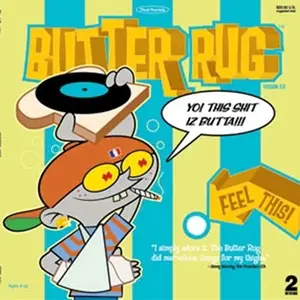
Then there are the DJs that see holes or unfulfilled needs in the market and create new products to fill them. One of the most successful, early examples I know of came from the turntablist world.
DJ Qbert (widely regarded as the world’s best scratch DJ) was unhappy with the range of vinyl slipmats available vs the requirements of scratch DJs. So he set about creating his own, resulting in Butter Rugs (“Yo! This shit iz butta!”). They were designed super thin to give the DJ as much tactile feedback from the platter and vinyl as possible. There is also a special coating on the underside of the mat meaning they slip really quickly across the platter when a DJ is scratching.
Another turntablist that regularly supplements his income by creating DJ tools is DJ Woody.
Woody produces and prints his own vinyl using samples that he has either found or created himself. And, because Woody is already an established champion DJ, he knows what the exact needs of a competition DJ are.
This means he creates superior scratch tools, sold under his Woodwork label, to supplement his gig income.
Releasing Music (Specifically… Self-Releasing)
Everyone knows that one way to earn money as a DJ is to release music. However, it is also common knowledge that getting noticed and signed by an established label is incredibly hard work. And the percentage of artists that are successful via that route is actually tiny.

However, with the rise of websites like Bandcamp, DJs are able to produce and release tracks without the need for a publishing deal. This also has the benefit that 100% of the profits go directly to the DJ.
One example of a DJ/Producer who does this is Dan Le Sac.
While he has produced and released albums through major record labels (as part of the Dan Le Sac vs Scroobious Pip, signed to Sunday Best Records), he now self-releases his solo music through the Bandcamp. And he’s actually quite prolific in doing so.
Dan often writes about the income streams of a DJ/Producers and even went as far as posting his self-publishing earnings in 2017 (you can read his fascinating article here).
While the days of making millions through releasing music, even through big labels, are long gone. It can still add another revenue stream. Plus, it is another way for a DJ to get their name out there. And, as you may have gathered from this list, having a stable/livable income from DJing is all about building these little one-percenters.
Put enough of them together and they’ll soon add up to a reasonable income.
YouTube & Vlogging
This sits in a similar realm to the tutorials and masterclass point described above. However, it extends beyond that into more general vlogs and looking behind the scenes of being a DJ. One DJ who has really taken this by the horns is again, Laidback Luke.
He regularly puts out not only tutorials and vlogs but will also answer questions that people have sent in. Often he will do interviews with other established DJs on specific topics. A great example is this video discussion with Afrojack where, together, they gave honest, insider answers to whether DJs really do “just press play”.
Now, while the earning potential from YouTube can be limited, there is definitely money to be made.
To give you a rough benchmark, a YouTuber will earn approximately $2,000 per million video views. This is why you will see some of the most successful YouTubers, who get 10s of millions of views per video, leading such extravagant lifestyles.
This, of course, will not be the case with most vlogging DJs.
However, while any income will supplement their baseline, doing regular vlog content enables them to reach a wider audience, while firming up their existing fan base. After all, the more people know you about you as a person the more they will grow to like you.
This, in turn, can lead to more bookings and sales when tracks are released. This again all goes into feeding and supporting a DJ’s multiple income streams.
Love DJ gear?
So do we, check out our favorites…
Product Endorsements / Influencer Marketing
This is one of the newer ways for DJs to make money online through social media. And you’ve probably heard the term “influencer marketing”.
This means a DJ can make money from simply putting their name to an existing product. And the model can work in a couple of different ways. Either come a company will pay the DJ a set amount to post a fixed number of social media posts using a particular product or the DJ may actually earn a percentage of sales.
To do this, DJs or influences will either be:
- Given a special link that tracks any sales sent through that link
- Or, DJ will be given give out a discount code for a specific product
This latter serves two purposes. Not only does that DJ’s audience feel like they’re getting a better deal on a product their favorite artist uses. But it also allows the company to track how many sales have been made by that DJ.
In both methods, the DJ then receives a percentage of everything that has been sold. Where this advertising model works best and is most convincing is when a DJ/online personality genuinely likes and uses that product themselves.
People have a good knack of being able to spot when they are being lied to. Often, when a DJ is promoting something they don’t genuinely like or are shilling multiple products at the same time, the audience is able to spot that the endorsement is not genuine.
This is why you will often see influencers go to great lengths to convince you that “I genuinely love” and use this product…
Product Consulting
This is a level above the method discussed above and actually relies on a DJ taking an active role in the development and testing of a product by an established company. There are a few good examples here.
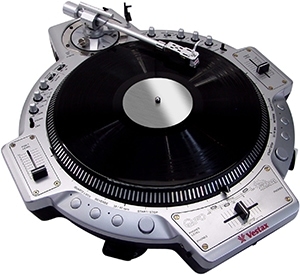
Turntable manufacturer Vestax have done this, on more than one occasion actually. Working with DJ Qbert, for example, they developed the QFO. Which was essentially a one turntable unit that had a scratch mixer built-in. This allows any DJ to simply take a single unit, plug it directly into a sound system and get to scratching straight away.
Then there is another Vestax product, the Controller One, this time built with direct input from DJ Woody (among others). Woody is well known for being one of the most musical turntablists in the scene. And I would argue, one of the few DJs that can be considered a musician (discussed in more detail in the “Are DJs musicians” article here).
The Controller One took a standard pitch slider found on all turntables and split the various speeds across 8 buttons. These allowed the DJ to play a tone from the vinyl and then change the platter speed by pushing the buttons. Thereby creating a tune in a very similar way to how keyboardists do.
One final example would be DJ craze who is currently championing Rane mixers. And he would have been a tester and have had input from the start. Advising on things like layout and features that he would like to see incorporated into a mixer.
Generally, this type of product consulting is only available to the bigger, more established DJ. For example, the three mentioned above, are all world champions in various forms.
The difference with this over the influencer marketing above it that the DJ is then able to earn a percentage of sales without the need for any special links or product codes. They simply make money for the unit itself selling.
And also, aside from any money made, they also get a product for their own setup that is exactly what they would like to use.
Do DJs Make Money Streaming?
Along with gigs, this is perhaps one of the most obvious ways in which DJs make money, and they are now several companies and services that pay per stream. Spotify is, of course, the most well known, but also Deezer and Apple pay per stream.
But just like discussed in the ‘releasing music’ note above this will not form the main income for any DJ. There is just simply not the revenue available and many streaming deals/contracts have low payouts. Spotify, for example, is known not to pay artists very much, even when they have millions upon millions of streams.
According to a report by DigitalMusicNews in 2019 Spotify pays $0.0038 per play, meaning 1 million plays will earn you in the region of $3,800.
Licensing
A much more lucrative form of making money from your music is by licensing. This essentially means people paying you to use your music. This could be things like films, TV, or video games.
Video games, in particular, is an ever-growing market with billions of dollars flying around each year. One of the first video games to do this well and perhaps the one that kicked off the trend was Tony Hawk’s Pro Skater 2, Released in 2000 it featured an excellent collection of rock and hip hop tracks.
Licensing in this way also has massive benefits aside from the financial income. In that your music will reach audiences way beyond what you might normally.
For example, someone who normally wouldn’t seek out dance music might discover a track in a film and then go online to purchase it.
Like so many of these points listed in this article, by doing one thing a DJ is able to support other income streams. In this instance, it is very likely that by a DJ licensing their music to a video game or TV ad their music sales and gig bookings will also increase.
Ghost Producing
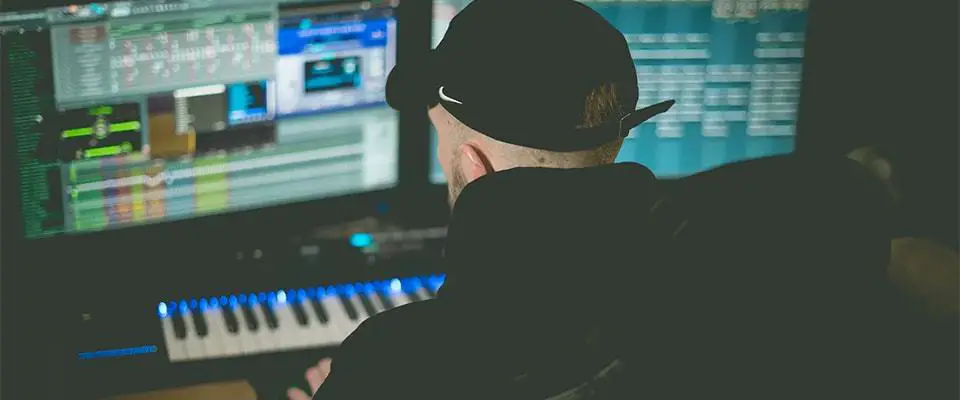
Put simply, ghost producing is when an artist makes a track for someone else. Sometimes they will be credited as a co-writer of that track but often they won’t. Instead, they sell the entire rights to the track so that the final artist is able to list it as being solely written by them.
Ghost production is much more common than you may think. In fact, many well-known producers will have made tracks for singers that they would never release under their own name.
Afrojack produced David Guetta’s “Titanium” but didn’t want to release his name in case his fans didn’t approve of working with Guetta. Case & point…
Ghost producing isn’t just limited to other artists, however.
Royalty-Free Music (Stock Music)
DJs and producers can also earn money by making music for the general population to use. They can end up as everything from podcast intros to beds for YouTube videos.

Websites like Audiohero and Envato allow producers to make tracks and then sell the rights online for people to use however they wish. This is also a good creative outlet for multi-talented producers.
If a DJ is well known for producing filthy, bass-heavy EDM would have an outlet for some lighter, more poppy tracks for example. They’d then be able to sell it under a different name for someone who needed a light intro for their YouTube video.
And again, all the work goes into producing the track in the first place. Once the track starts being sold, it essentially becomes another passive income stream. Particularly as sites like Audiohero handle everything from the marketing to sales and payment processing.
Residencies
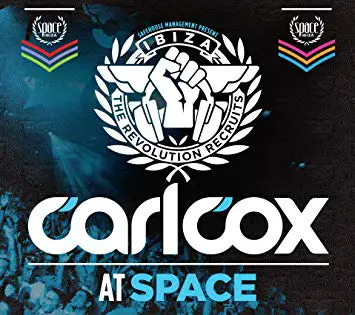
Further to the gig explanation above. One thing that many DJs aim to do is find a club or venue in which they can do a regular residency.
This does a couple of things…
- Firstly it allows them to fill a regular booking in their calendar for months to come. Therefore bringing in a predictable, stable income.
- It also gives their fans a regular opportunity to see them in a specific place.
Examples of this include Las Vegas residencies from the likes of Deadmau5 and Afrojack to legendary long-standing Ibiza residences such as Carl Cox’s parties at Space.
However, residencies are limited just to big-name DJs. They can actually be relatively easy for up and coming DJs to find residences in their hometown. Smaller clubs often want a good DJ without the hassle of having to find and book new ones every month. So by having a resident, they are able to fill time slots, with minimal effort, and for a fixed, ongoing fee.
Branching Out

We have already discussed DJs creating and selling products themselves. However, the ones discussed above were primarily still in the DJ realm. Whereas many DJs are branching out, particularly with entrepreneurship being so fashionable.
This means that DJs can again spread their name and put themselves in front of audiences completely separate from dance music fans.
One of the best examples of this would be Steve Aoki, who is well known for creating brands away from DJing including restaurants. However, my favorite example of his entrepreneurial activities is a true indication of how far these branches can go…
Aoki partnered up with Tom Bilyeu of Impact Theory (a well-known entrepreneur in his own right) and created the Neon Future comic book range.
Doing this not only gave Aoki another income stream and exposed him to a different subsection of audience, it also allowed him to express his creativity. In a way, completely unrelated to music.
And in this sense, when a DJ starts to think about making money outside of music then the possibilities are endless.
Conclusion How Do DJs Make Money?
As you will have seen by now there are many different ways for a DJ to generate income. And they go far beyond that of simply playing gigs and releasing music. This is how the most successful DJs will maintain their lifestyle without needing to reach the superstar level, of say, Skrillex (see his software & setup here) or Deadmau5 (and his).
By simply being smart, and open to new opportunities, a DJ is able to make a decent living by simply stacking multiple streams of income. Even if they are small, once you add enough then they pretty soon start mounting up to a regular, stable income.
This makes the entire desirable concept of DJing for a living much more achievable and sustainable. So if you are thinking about becoming a DJ. Remember to think outside of the box, and diversify your income.
If you have any other ideas of how DJs make money then drop them in the comments, and I’ll be happy to update the article.

